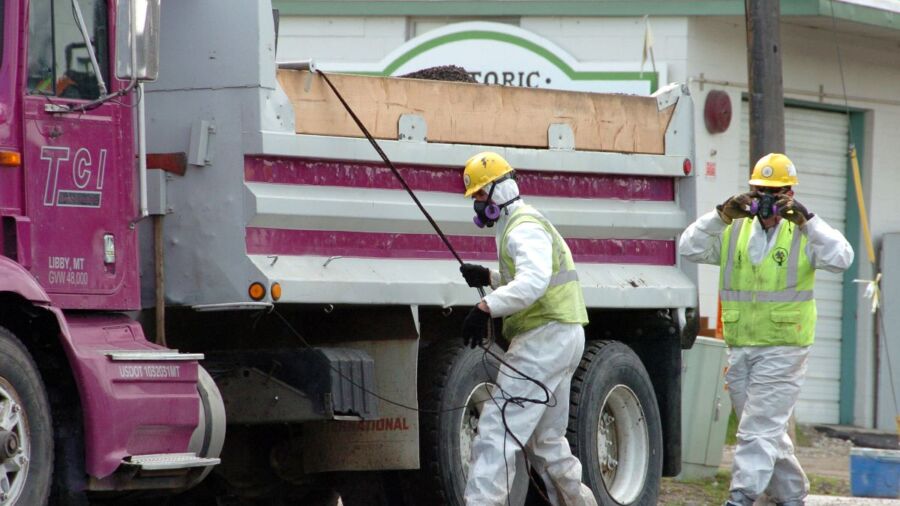On Monday, the Environmental Protection Agency (EPA) finalized the prohibition of the ongoing use of asbestos, a known carcinogen banned in over 50 countries.
“The action marks a major milestone for chemical safety after more than three decades of inadequate protections and serious delays during the previous administration to implement the 2016 amendments,” the EPA said in a statement.
The asbestos ban is the first rule to be finalized under the 2016 amendments to the Toxic Substances Control Act (TSCA), a chemical safety law adopted in 1976.
An initial EPA ban on asbestos issued in 1989 was struck down in court two years later in a legal decision that significantly reduced the EPA’s authority under the TSCA.
The 2016 amendments to the TSCA were the result of years-long negotiations between lawmakers, industry leaders, and environmental and public health organizations. The changes to the law were approved with near-unanimous bipartisan support in both the House and the Senate.
“The science is clear—asbestos is a known carcinogen that has severe impacts on public health,” EPA Administrator Michael S. Regan said. “President Biden understands that this concern has spanned generations and impacted the lives of countless people.”
He added that the “EPA has been working expeditiously to put the nation’s chemical safety program back on track and finally realize the protections of the 2016 law.”
“I’ve been [sic] spent years advocating for asbestos to be banned,” said Congresswoman Suzanne Bonamici, adding she was “grateful for the steps the EPA is taking today to finalize its rule to prohibit the import and use of chrysotile asbestos.”
“The United States is finally starting to catch up,” said Senator Jeff Merkley, calling the ban “a long overdue step forward for public health.”
President Biden’s Cancer Moonshot Goal
The White House said the ban constitutes an important contribution to the Biden Cancer Moonshot goal, which aims to reduce the cancer death rate by at least half by 2047 through the regulation of carcinogenic chemicals.
“This action marks a major step to improve chemical safety after decades of inadequate protections,” White House Council on Environmental Quality Chair Brenda Mallory said.
Asbestos, a fibrous mineral known for its fire-retardant properties, is linked to more than 40,000 deaths in the U.S. each year.
Most—but not all—consumer products that historically contained asbestos have been discontinued, with a common exception being aftermarket automotive brakes.
Exposure to fine asbestos particles can lead to lung cancer, laryngeal cancer, ovarian cancer, and other types of cancer.
Industrial Use
The asbestos ban will most affect the chlor-alkali sector, which uses asbestos to manufacture sodium hydroxide and chlorine, which are critical to disinfect drinking water and wastewater.
In order to avoid disrupting the supply of chlorine needed for water purification purposes, the EPA has given the few remaining chlor-alkali plants that still rely on asbestos “reasonable transition times” to switch to different manufacturing processes—a complicated transition that requires extensive construction, additional permits, specialized expertise and parts for which there are limited suppliers.
The EPA said it expects eight plants to make the conversion. Depending on the specifics, companies will have five to a maximum of 12 years to convert their plants to non-asbestos-based production processes.
The EPA said it will also implement additional regulations to ensure that asbestos is disposed of properly, in line with industry standards, Occupational Safety and Health Administration requirements, and the Asbestos National Emission Standards for Hazardous Air Pollutants.


